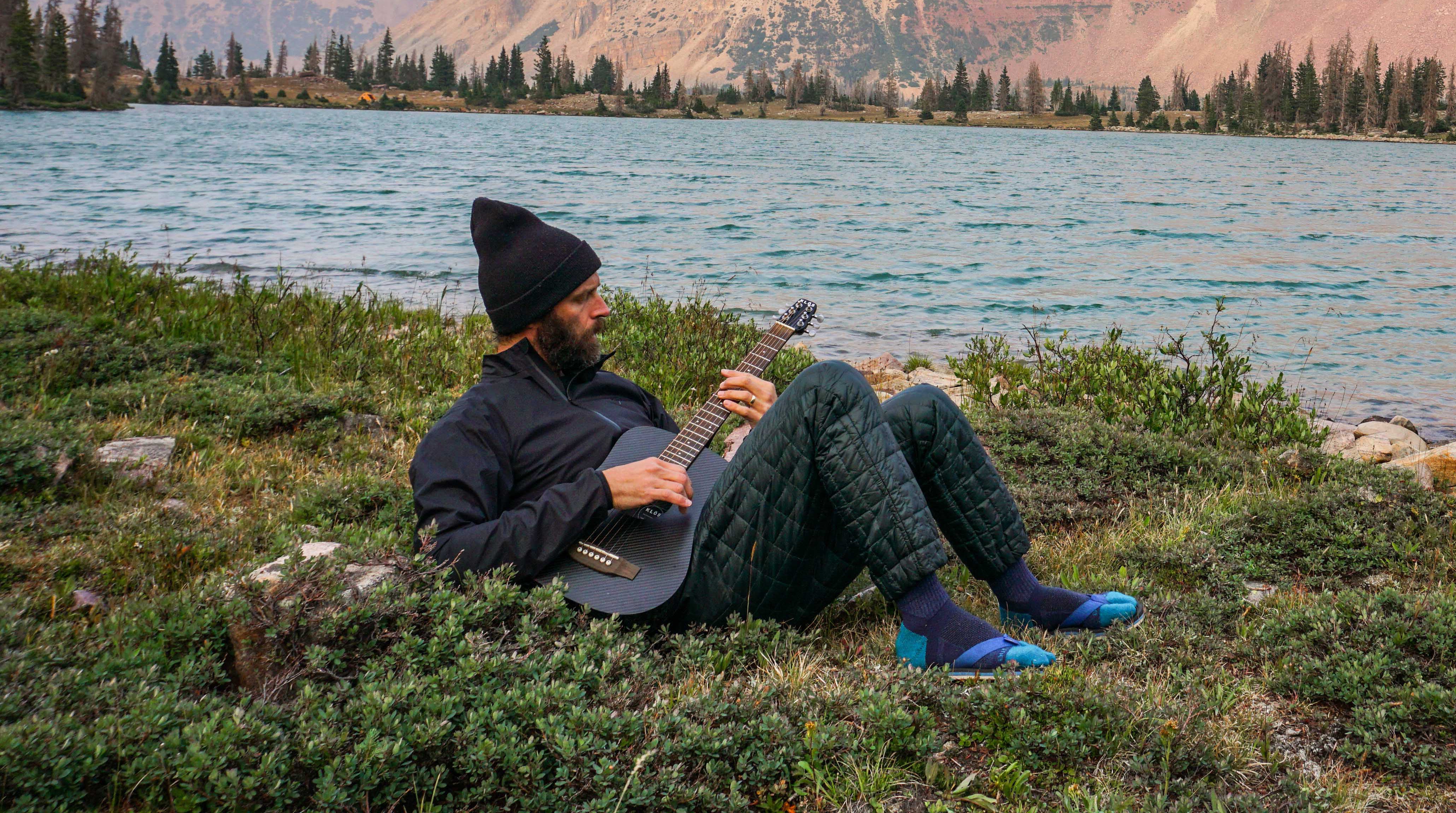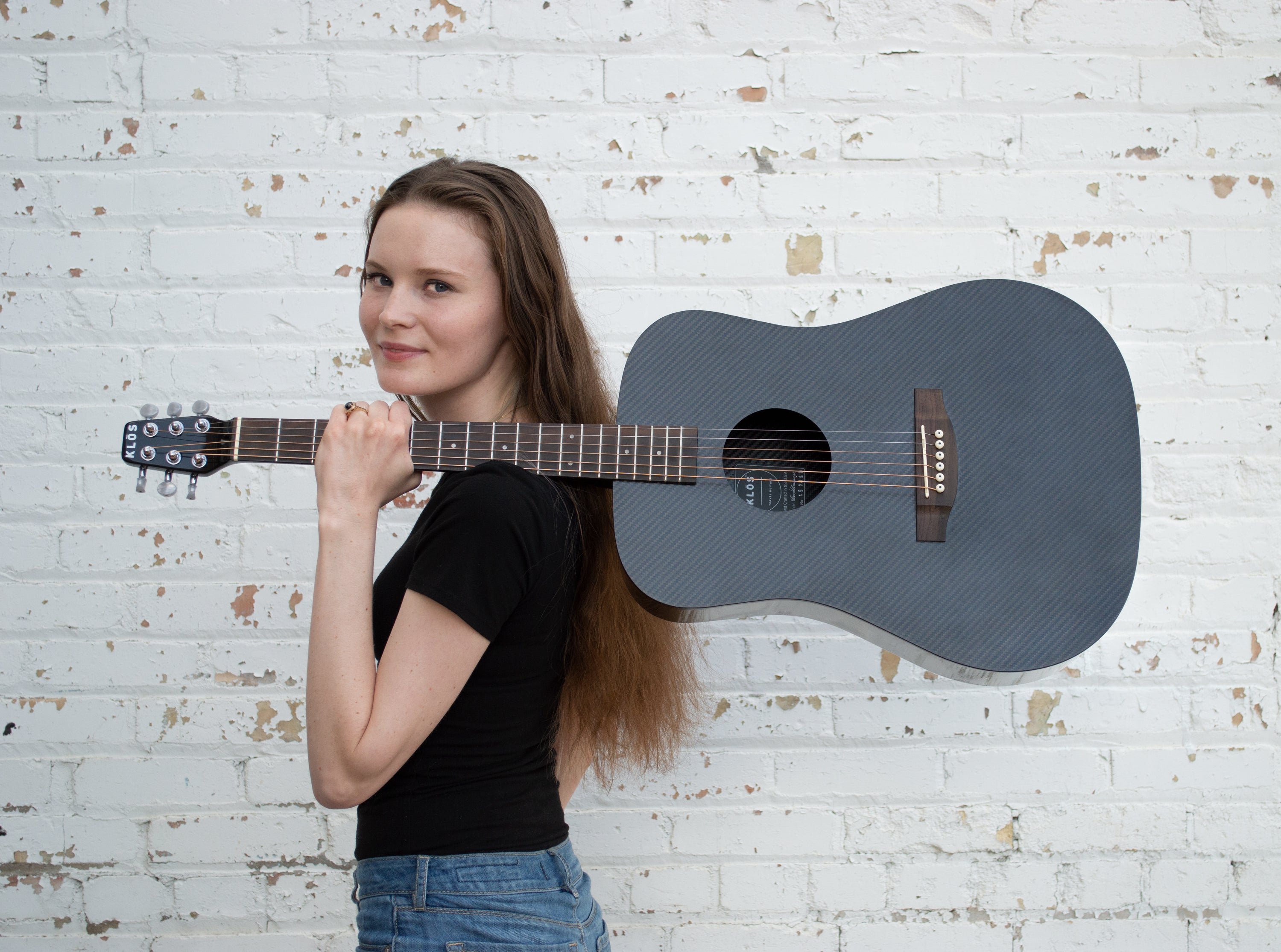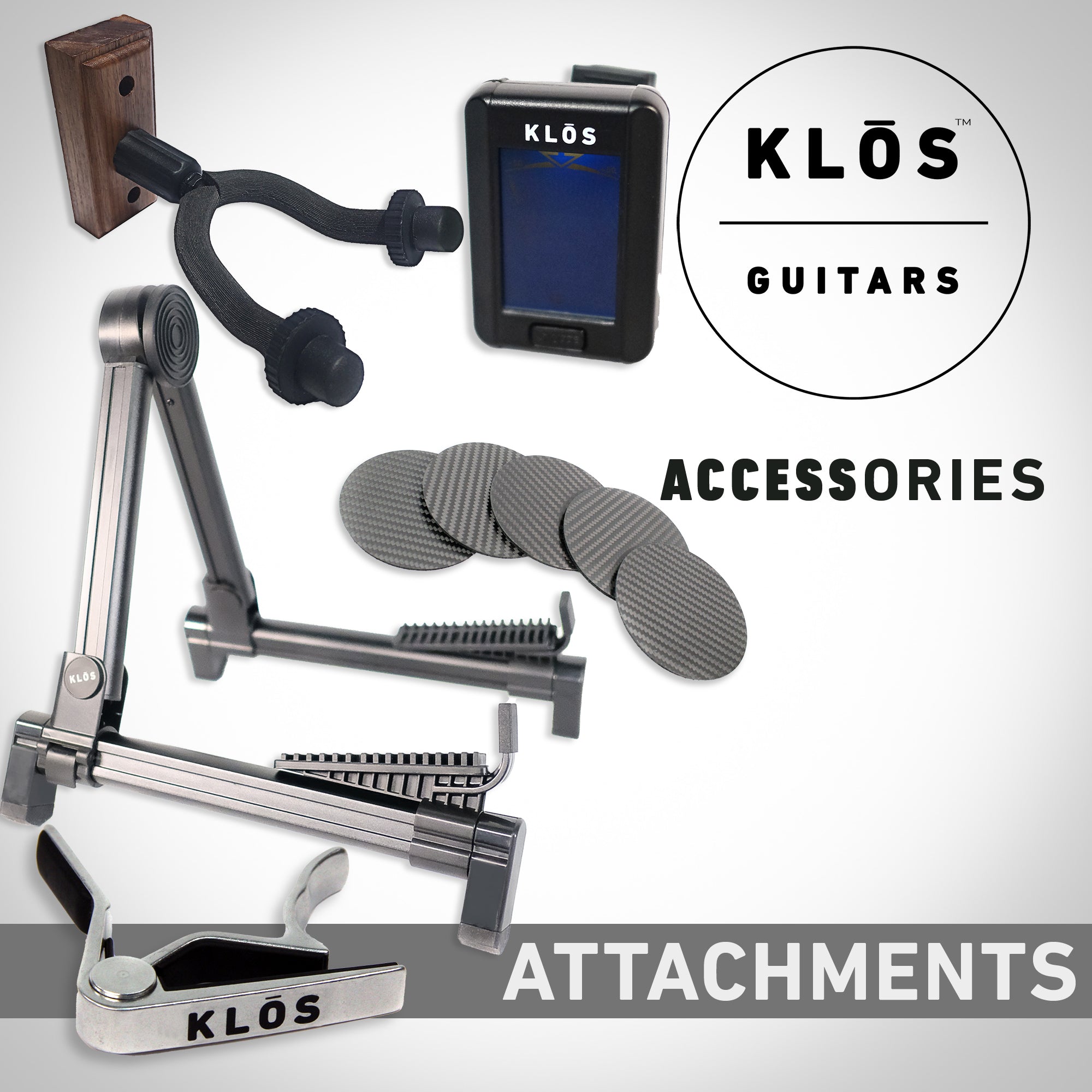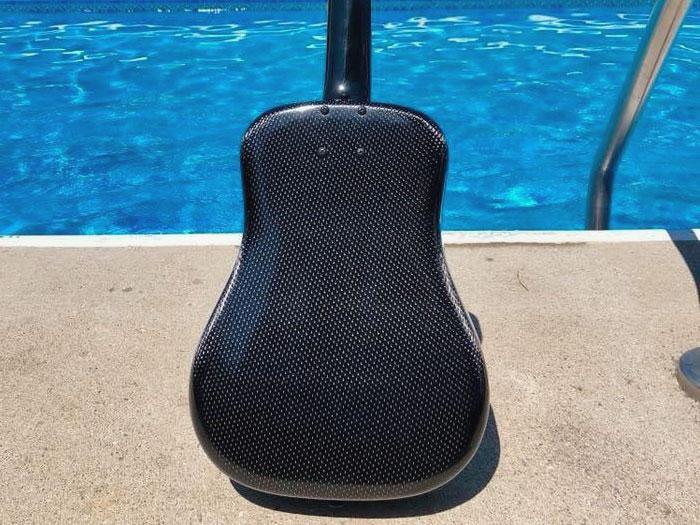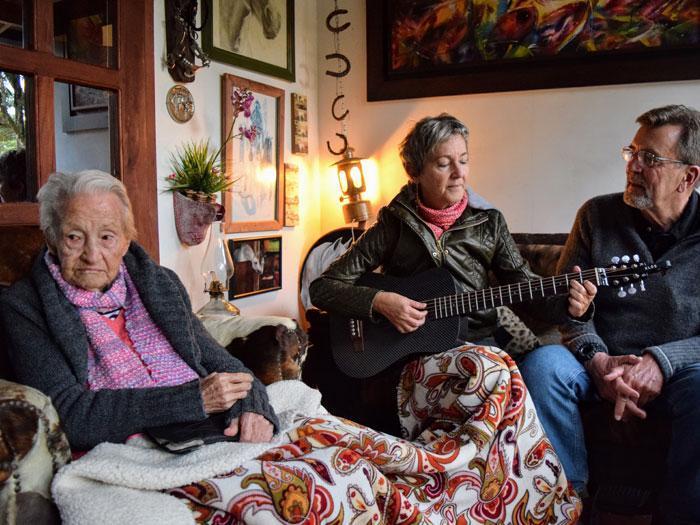Co-founder and CEO Adam Klosowiak's business builds durable carbon-fiber guitars, allowing musicians to travel with greater peace of mind.
Klosowiak notes how acoustic guitars traditionally made from wood are "very susceptible to damage." There's "passive damage" caused by the elements: guitars warping as a result of temperature fluctuations and changes in humidity. "That's why in every guitar store, you'll see the nice instruments in a humidified room," says Klosowiak. And there's also "active damage": a guitar breaking as a result of being dropped or otherwise banged up. The instances of this occurring during air travel are the stuff of legend.

But Klosowiak's company allows guitar players to breathe a sigh of relief when it comes to instrument care and transport. That's because KLOS Guitars manufactures instruments out of carbon fiber: strong composite material known for its durability.
In terms of carbon fiber's use in industry, Klosowiak points out how "road bikes, mountain bikes, hockey sticks, car parts, and plane parts" are being manufactures out of the material. "It has an incredible strength-to-weight ratio," he says.
KLOS jokingly shows its guitars being used to whack a golf ball and baseball in videos online. Furthermore, the carbon fiber material can sustain extreme temperatures from "negative 40 degrees to 140 [degrees Fahrenheit]."
The necks on the guitars are made from either carbon-fiber or from wood that has reinforced carbon-fiber rods within them. There are smaller bodied acoustic guitars with standard guitar neck sizes, marketed as "travel guitars," in addition to the full-sized models. The necks can be removed for traveling on the fly.
Klosowiak joined his brother Ian, a mechanical engineer and the company's co-founder, full-time in Utah after they'd worked on early prototypes together. (Ian had also given Adam guitar lessons over Skype.) With Adam's assistance, Ian had already won a $1,000 award for an early travel guitar he submitted as a project at Brigham Young University.

The two then entered a program at Princeton University, where Adam had studied electrical engineering, resulting in a $20,000 award there. They crowdfunded their first 70 guitars on Kickstarter. And they've continued to rely on the crowdfunding model for releasing additional products. KLOS -- the company name deriving from the brothers' last name -- now sells carbon-fiber ukuleles, as well as solid body electric and bass guitars through its website.
Additionally, KLOS guitars are sold in about "92 stores all over the world." The company has built close to 10,000 guitars, earning the company close to $2 million now in annual revenue. KLOS isn't the first company to use carbon fiber to make guitars, but Klosowiak says the company's goal has been to make them "more affordable, make them portable." A travel guitar can range from $839 to $1,429, and full-sized acoustic guitars from $1,239 to $1,999.
A guitar typically takes about eight hours to build. They're made within the company's 3,600 square feet of connected warehouse space in Provo. There, bodies are joined to soundboards. Edges are trimmed. The frets on the guitar neck are "filed, leveled, polished." Bridge pins are drilled. The company also has a laser engraver and a CNC machine, used for making the electric guitar and bass bodies, within an additional warehouse space.

Klosowiak says the guitars are not only durable and aesthetically pleasing, they have great acoustics as well. The company takes steps to match the flexibility -- but not the fragility -- of a wooden guitar body's top-facing soundboard by using a "composite sandwich panel,” he adds. “You've got a layer of carbon and then foam and then carbon. So, the outside of the structure is all carbon, but the inside is kind of a softer filler -- and that is what allows it to flex."
For Klosowiak, the best feedback comes from customers who send photos of themselves using their KLOS guitars in the field, so to speak -- "whether they're climbing a big mountain or they're gigging often." He adds, "That means that we're successfully building a good instrument that is durable and portable and sounds great."
Challenges: "Our biggest challenge right now is scaling effectively for our size of business," says Klosowiak. The company is still relatively small, yet it's managed to grow organically. "We never took funding at the beginning, and so we really only grow from our profit."
Opportunities: "The goal for us is to really expand our product portfolio," says Klosowiak. "We're actually working on nine different new products that we're launching."
Additionally, the brothers sell a "silent cable" for guitars that they designed and a contract partner manufactures. It bypasses the loud buzzing contact noise often heard when a guitar cable is inserted into an instrument onstage. "We've sold a few thousand of them," says Klosowiak.
Needs: Klosowiak plans to make additional hires that will lead to a "more experienced team."




